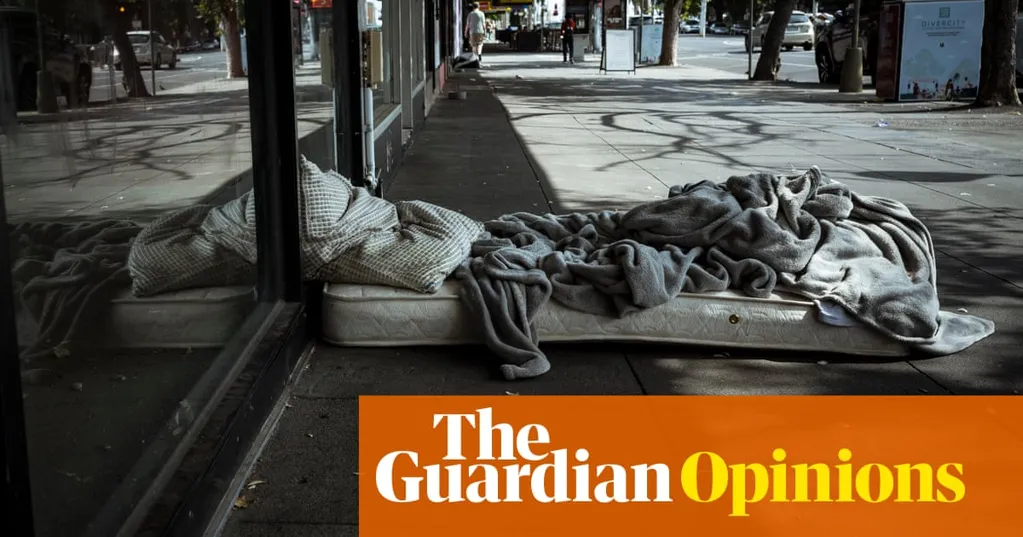Programs to address homelessness have the potential to practically pay for themselves through government savings on health and justice spending.
Picture a GP clinic in western Sydney. Nadia*, 34, is back for her third script of the year. She started getting panic attacks after her landlord hiked the rent several times. Each time she feared the next eviction notice would push her, her partner and two kids into homelessness. The doctor adjusts her dose, offers a mental-health plan, but there's something else that could also help Nadia - access to secure and affordable housing.
The data is now overwhelming: a recent rental affordability index labelled every capital city in Australia "critically unaffordable" for anyone on the minimum wage in 2024. One million low-income households already spend more than 30% of their earnings on shelter.
Housing stress is a potent driver of mental ill-health in Australia. Making housing part of healthcare sounds radical, but international evidence and pilot programs show it could improve health outcomes and almost pay for itself in lower hospital bills within a few years.
Other countries have run the experiment already. Finland's Housing First strategy gives people experiencing chronic homelessness a permanent apartment and wrap-around access to support, which has been successful in cutting rough sleeping for a decade.
Closer to home, New South Wales's Together Home program has housed more than 1,000 former rough sleepers. An evaluation last year found the use of emergency rooms by respondents decreased after being housed. It reported that the number of hospital admissions for respondents fell, while primary care visits rose. This is consistent with findings from previous studies and suggests that people had the stability to see a GP instead of waiting for a crisis.
These results echo a landmark trial in Canada, which saved the public purse for every dollar spent - and even more when high-need participants were counted.
We may spend $1,500 a night keeping someone in an emergency ward, but balk at $70 a night to keep them in a studio flat with a visiting support worker.
Here's a bold proposal: make secure housing a Medicare item.
Our health and housing systems sit in separate silos. The federal government funds Medicare, and states shoulder much of the social housing bill. A hospital can claim activity-based funding for a mental health admission, but not for preventing that admission with a rent subsidy.
Give GPs the option to refer eligible patients. Think of people cycling through the ED with anxiety or substance-use crises to a Housing First-type lease funded for two years, with tenancy support paid under Medicare.
The National Housing and Homelessness Plan consultation report is on the minister's desk, so why not add a KPI: a 30% reduction in mental health hospitalisations linked to housing insecurity within five years? Report it in budget papers, line by line, just as we do with elective surgery wait times. When hospital admissions drop, the Treasury should return a slice of those avoided costs to the housing portfolio. Canada's model found that every dollar invested saved money in health and justice spending for people with complex needs.
Finland's Housing First units average about 15,000 Euros (about $26,000) a year each, including support. Roughly 38,000 Australians are stuck in what the Australian Institute of Health and Welfare calls persistent homelessness. Because that number is measured over two years, about 18,000-20,000 people enter chronic homelessness each year. Funding 10,000 Housing First places would cover around half the annual flow; a practical first step. The NSW's Together Home evaluation suggests emergency and inpatient savings alone could help foot the bill; factor in reduced policing, courts and ambulance use, and the program could get closer to net-positive within a parliamentary term.
Australia's Medicare levy exists because we once agreed no one should skip the doctor for fear of the bill. The same logic should apply to housing.
When a lack of secure shelter risks driving poor health outcomes, leading to increased health costs, refusing to fund evidence-based housing interventions makes little social or economic sense.
If the Albanese government is serious about "getting bang for taxpayer buck", one answer is a stable address. If it can happen overseas, it's time to happens here.
